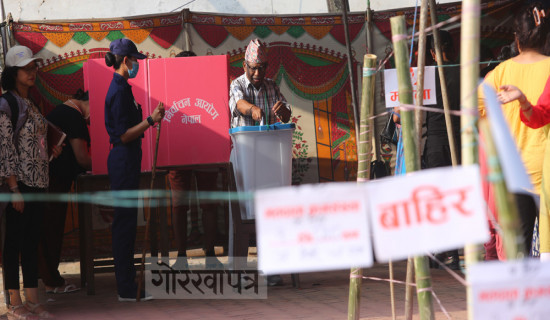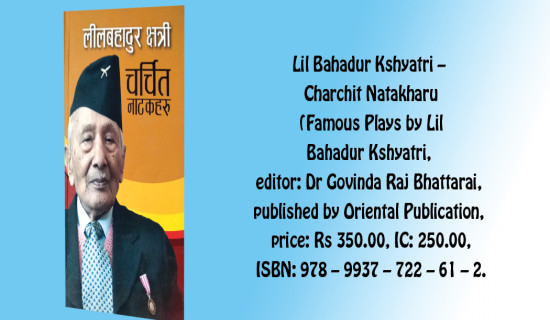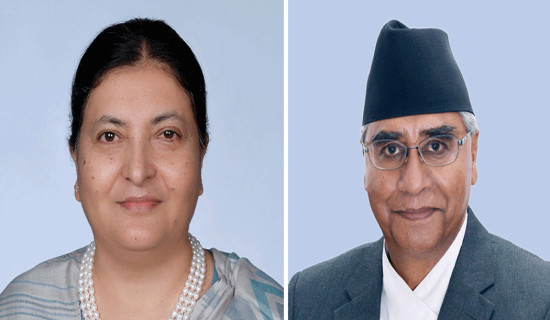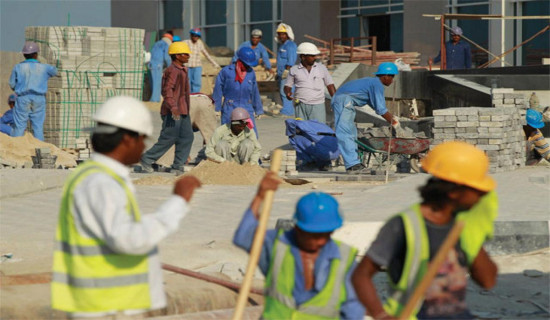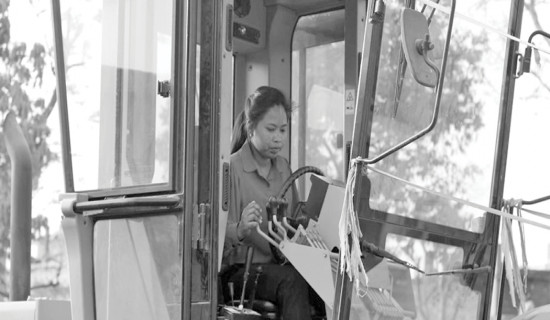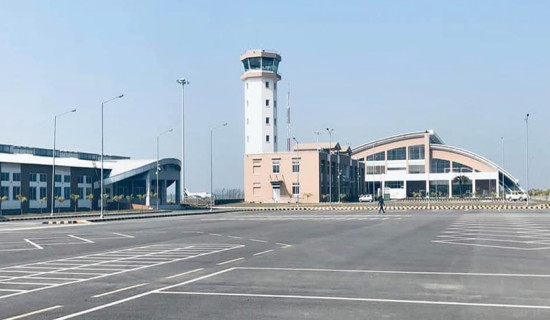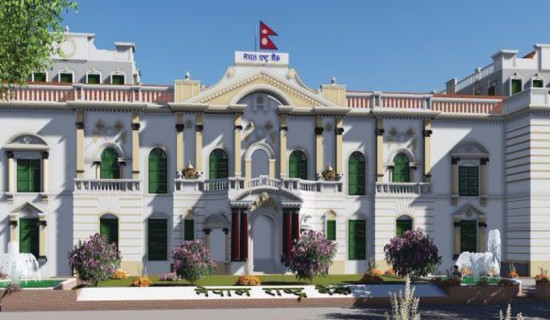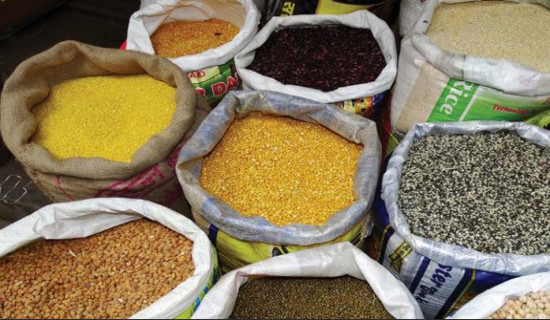- Monday, 25 August 2025
Social Capital Fosters Solidarity
Modern society has three key players-- the state, the market and citizens-- with all their informal and formal institutions, networks and movements known as the civil society. The diffusion of power away from the state has innovated paired norms, values and interests of these players to breed social capital, resolve distributional conflicts and alleviate the rising scarcity of public goods in society. The state assumes legitimate power monopoly to subdue chaos, create security and order and govern society. The market hinges on competition aiming to spur production, exchange and allocation of various goods. Civil society grows on the spirits of mediation, voluntarism, charity and giving.
Advance Community-Led HIV Response
For decades, community engagement has been critical to HIV prevention in terms of understanding the context of the epidemic, addressing community needs, reducing health disparities, and achieving health equity. Therefore, governments and development partners are increasingly focusing on meaningful community engagement to protect and promote the rights of key populations and people living with HIV who are poor and socially marginalised with limited access to health care services. There are increasing evidences that community-led responses to HIV result in positive health outcomes and enhance community resilience. Considering the emerging trends of key populations-led HIV response, meaningful and inclusive participation of civil society is critical to connect the marginalised communities with services and ensure that no one is left behind.
Nation Goes To Polls Today, Strengthening Democracy At Grassroots
The nation goes to local polls today, the second time since the country adopted the federal democratic constitution in September 2015. Our charter envisages periodic local polls every five years. This time, too, polls at 753 local bodies, revered as the very basis of our federal system of governance, have shone a light on our contemporary governing system that prides itself on devolution of power to the grassroots. Our local bodies enjoy over 250 rights, thanks to the legislation, arranged by the people's representatives through constituent assemblies.
Menstruation Troubles For Female Teachers
Teaching is a platform where teachers impart knowledge to students. The more knowledge they share the more the student learns. However, sometimes problems pose dilemmas for teachers in teaching. When a teacher happens to be a female, she encounters a special problem - the menstrual cycle during teachings. The menstruation period is not only about a situation of facing bleeding problems but there happened to be both physical and psychological disorders among females which can be perceived mainly in the form of pre-menstrual syndromes such as painful cramps that cause troubles in the teaching and learning process.
Himalayan Bird Count on May 14
By A Staff Reporter Kathmandu, May 13: Birdwatchers in the Himalayan regions of Nepal, India and Bhutan will come together to document as many birds in the mountain range as possible on May 14.This is the first edition of the Himalayan Bird Count (HBC) which aims to celebrate the incredible bird diversity and bring attention to the threatened habitats of the Himalayas.In the event organised by Bird Conservation Nepal (BCN), Bird Count India and the Royal Society for the Protection of Nature, Bhutan, are working together to bring the Himalayan birding fraternity together for the common good. The organisations have collectively decided to conduct this event on Endemic Bird Day to spread awareness about Himalaya’s bird biodiversity, said a press statement issued by the BCN.“The rich and diverse biodiversity of the Himalayan region is home to several species of birds. We are hopeful that the “Himalayan Bird Count”, initiated by three countries, is one of the many events for the birds and biodiversity conservation of the Himalayan region,” said Ishana Thapa, Chief Executive Officer of the BCN. “Himalayan Bird Count can provide consistent, snapshot information of bird diversity in a region that is increasingly threatened by climate change. This kind of information, across the years, can help us understand what is happening to our country’s birds,” said Dr. Ghazala Shahabuddin, Senior Fellow, Centre for Ecology, Development and Research (CEDAR) working in Kumaon Hills, Uttarakhand. The biological diversity of the Himalayas is also under unprecedented threat due to large-scale infrastructure development, the statement reads.The basic activity is to view and count birds from anywhere in the listed Himalayan region on Saturday for at least 15 minutes and upload bird lists to the bird recording platform eBird (www.ebird.org). The day is also going to be celebrated as World Migratory Bird Day 2022.
Rebirth Of Forgotten Dramas Of Lil Bahadur
Lil Bahadur Kshyatri flew to Delhi from Assam and received the prestigious national award Padmashree there from India’s president and returned to his home at the end of 2021. He is now 91 years old. This honour from the Indian government, which the nonagenarian litterateur received, is for his contributions to the Nepali language and literature. In this regard, it would be appropriate to remember Kshyatri as a litterateur, who has also been widely known for ‘thin book with powerful theme’ since he wrote a highly popular small novel named “Basain" in the Nepali language. Thus, Lil Bahadur’s contributions to Nepali literature and language are non-stop and it is hard to measure his selfless creative devotion.
Mystical Mustang
Mustang, the last frontier of the trans-Himalayan fiefdom, is a land cloaked in a mystical veil of enigmatic parables. The facades in the upper and lower Mustang have kaleidoscopic natural rejigging. The amber-hued mountains guard the region with their majestic presence, exuding a veneered pastiche of mother nature. From its surreal semi-arid desert to motley formations of rock, snow-kissed mountains, and the stark contrast of green crop fields amidst the off-beaten landscape akin to a desert, it's a homeland of juxtaposing panorama. Opined as the "Plain of the Aspirations" in the Tibetian language, it simply oscillates with a sense of alchemy.
Promoting Mental Health
Grishma Paneru Sarita was a sophomore. She fell in love with a mysterious but attractive boy. It was a perfect relationship, until one day she felt his hand on her face. He said, "You stupid, if you were silent, that wouldn't have happened." From that moment on, her life was upset. She was psychologically, emotionally, and sexually abused. He humiliated her, talked about her being overweight, and robbed her of all her power. She began to question her self-esteem, self-confidence, and the true purpose of life. She often thought of suicide. Sarita said that was the way for her, with tears in her eyes. She didn't tell anyone at first. She was embarrassed and ashamed and couldn't say what she was experiencing. His family and friends worshipped him. He isolated her from her support system, the people who loved her and cared for her deeply. Contact with family and friends was limited. He monitored all her movements.CourageEventually, she gained enough courage and power to talk to her friends. She left him and moved with one of her friends for a while, but the abuser persuaded her to return to him. He vowed to seek counselling and anger management programmes, but he never did. He said everything was right to get her back. She truly believed in him. She gave in to another chance.No change has ever come. One day he put his hand on her neck and began to strangle her. It was like being possessed. He vowed to kill her if she left him. She saw herself dying in his hands.It was the most horrifying time of her life. It was very difficult for her to start over without him, but she decided to move forward and live again. She went to a friend who helped her contact the trauma counsellor. It took her a couple of months to recover from the trauma that she had from her husband. She went through multiple counselling and therapeutic sessions and recovered mentally and emotionally.Sarita is not the only one who has been a victim of domestic violence. Domestic violence and abuse (DVA) are major public health issues affecting the lives of people around the world. Violence against women is increasing around the world, triggered by the Covid 19 pandemic. But even before the pandemic, the World Health Organisation reported that nearly one in three women (about 852 million women worldwide) were exposed to violence at some point in their lives. According to the United Nations Population Fund, 48% of Nepali women reported experiencing some form of violence at some point in their lives, of which 15% experienced sexual violence. This happens when a partner attempts to gain psychological and emotional control over a woman by insulting, controlling behaviour, verbal abuse and intimidating the woman. There is a link between domestic violence and mental health problems. Mental health problems are a common consequence of domestic violence for both adults and children. And there are mental health issues that can make a person more vulnerable to abuse. It is perhaps not surprising, then, that a substantial proportion of people accessing mental health services have experienced abuse. Despite these strong associations, domestic violence often goes unnoticed in mental health services, and domestic violence services are not always able to assist those with mental health problems.Women who have experienced domestic violence or abuse are at very high risk of experiencing a variety of mental illnesses, including post-traumatic stress disorder (PTSD), depression, anxiety, substance abuse and suicide ideation. Physical and psychological abuse not only causes pain but also psychologically damages and increases the risk of developing mental illness in women. Fear, anxiety and sadness are the usual emotions associated with domestic violence. Although these negative emotions do not automatically indicate mental illness, the effects of trauma can significantly alter a person's memory, arousal and emotional and cognitive responses to the outside work. For many survivors, healing begins when they find that these symptoms are predictable, temporary and treatable consequences of the violence they survive. Although domestic violence and abuse (DVA) are associated with an increased risk of mental illness, little is known about the mental health of female DVA survivors seeking assistance from domestic violence services. Seeking Mental Health ServicesSurvivors should look for therapists, counselling groups and mental health services who are familiar with trauma and have experience dealing with the long-term effects of domestic violence. Treatment, counselling and support groups for survivors of domestic violence are not limited to those experiencing long-term effects such as PTSD and depression but are part of the mental health toolkit. Children affected by domestic violence can also benefit from talking to trauma-savvy professionals.We can learn about how violence and mental health problems affect those close to us on an individual level. Being there in a supportive, non-judgmental role, listening and helping in finding resources are all good ways to break down the stigma and isolation that abused women often feel. Domestic violence officers must be aware of the link between domestic violence and other adverse experiences and impacts and ensure that they respond to it. They need to hold local leaders accountable for providing support and intervention to victims/survivors and perpetrators with diverse needs (including mental health) and risks of all levels. In addition to emphasizing the mental health issues faced by victims of domestic violence, there is a need to identify multidisciplinary interventions that can provide practical and timely solutions for victims of domestic violence amid the pandemic, ranging from personalized care strategies to educational programs, escape plans, legislation and regulations, and more technology-based mental health solutions. There is a significant need for more multifaceted and multidisciplinary strategies to address domestic violence during and after the pandemic, particularly interventions that could benefit from the ubiquity and cost-effectiveness of technology-based solutions.(Paneru is a psycho-social counsellor and mental health consultant)
President, PM call to cast votes in fearless way
President Bidya Devi Bhandari has called for a joyous involvement of the citizens in the Local Level Elections 2022, saying that election is the biggest festival of democracy. Addressing the citizens through a video message on Thursday, President Bhadnari also called on the public to cast votes without an iota of fear on May 13, Stating that rule by the elected representatives is the most beautiful aspect of democracy, she said periodic election is the pillar of democracy. President Bhandari said that the elections prove that the citizens are the main source of the state power.
Qatar urges Nepali workers to collect their due remunerations
By A Staff Reporter Kathmandu, May 13: Qatar has urged the Nepali workers who had returned empty handed after serving at the Qatar-based Mercury MENA in 2017 to collect their due remunerations. Issuing a statement on Thursday, the Government of Qatar urged the remaining workers who are yet to receive their due money to contact the Embassy of Qatar in Kathmandu or Department of Foreign Employment (DoFE). They should contact either institution with the document proving their Qatari identity number and passport, said the embassy. According to the statement, Govinda Mochi, Santosh Kumar Sharma, Sanjay Chaudhary, Sakil Ahamad Musalman, Sabin Karki, Ranjit Kumar Khang, Rameshwor Mandal and Ramakant Khang can directly contact the embassy or DoFE. Other Nepalis requested to contact are Ram Krishna Niraula, Niranjan Pasman, Gyan Chand Kurmi, Brahmdev Khang Khtwe, Birendra Hajara, Baijnath Chaudhary, Ajay Kumar Shrestha, Vinod Kumar Bhar, Tej Narayan Ray Amat, Surendra Bohora, Sikandar Mukhiya, Selendra Maharan and Ram Udagar Ram. Likewise, the embassy has urged Dipendra Sarki and Dhruba Sripali to reach the embassy or DoFE with the documents. Last year, 33 Nepalis had received their due money from the company. The workers had returned penniless from Mercury MENA, a mechanical, engineering and plumbing company that operated its services across the mid-Asia and North Africa. According to a report of Amnesty International, each worker has unpaid salaries and benefits averaging over US$2,000.
Anita Tharu breaks glass ceiling to become grader operator
Anita Tharu is found digging and constructing new road track from city to village in Ghorahi. For the past four years Tharu has been driving heavy vehicle for constructions in various places including Dang. Tharu, a grader operator in Ghorahi Sub-metropolitan for the past one year, has started operating a grader for construction works carried by the metropolitan recently. She came to Dang from Bardiya and learned to operate the machine with the help of her relatives after completing her college, said Tharu. "I was unable to continue my studies due to the poor financial condition of my family, so I stayed at home," said Tharu. She informed that her brother-in-law was working as a grader operator in the construction of Ghorahi-Murkuti road at the time.
Jazeera Airways to operate flights to Bhairahawa from June 12
Jazeera Airways will operate regular flights to the Gautam Buddha International Airport (GBIA) of Bhairahawa from June 12. Jazeera, which has taken approval from GBIA, will operate the opening flight on May 16 (day of Buddha Jayanati). Nepal government has assigned May 16 as the flight opening day for the airways in the newly built second international airport of the nation. General Manager of GBIA Govinda Prasad Dahal informed that GBIA will conduct three flights a week. Jazeera has been conducting single flight per day to and from Kathmandu. According to the schedule published by Jazeera, the flight to Bhairahawa will take off from Doha of Qatar. The passengers from Qatar can have the direct flight to Bhairahawa with a transit in Kuwait. The flight will land at GBIA.
Growth of deposit collection remains low
Growth of deposit collection at the banks and financial institutions (BFIs) has remained low during the first nine months of the current fiscal year 2021/22 compared to the same period a year ago. Deposit collection by BFIs has increased by 5.1 per cent in the review period compared to an increase of 13.7 per cent in the corresponding period of the previous year, according to a macroeconomic and financial report of Nepal Rastra Bank (NRB). On y-o-y basis, deposits at BFIs expanded by 12.2 per cent in mid-April 2022.
Govt working to achieve food security
Ministry of Agriculture and Livestock Development has been preparing policy, programmes and budget for the upcoming fiscal year 2022/23 focusing on import substitution and food security by increasing productivity and production of agricultural produces.
Winning Miss Teen Crown
The moment when the crown of Miss Teen Nepal was placed on my head is still fresh in my mind. I was proud of myself, overwhelmed with joy and a strange feeling of satisfaction flowed down all my nerves. That time, I did not realise what had happened to me though I was crowned with the Miss Teen Nepal 2021 title organised by Kathmandu Jaycees.




